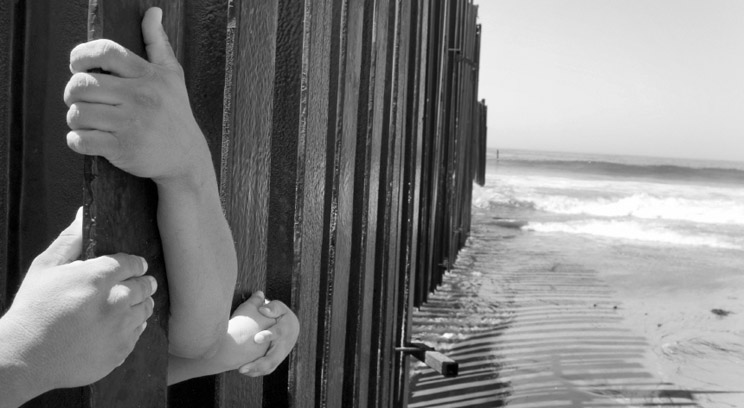“With what can we compare the kingdom of God, or what parable will we use for it? It is like a mustard seed, which, when sown upon the ground, is the smallest of all the seeds on earth; yet when it is sown it grows up and becomes the greatest of all shrubs, and puts forth large branches, so that the birds of the air can make nests in its shade.” – Mark 4:30-32
“Every migrant is a human person who, as such, possesses fundamental, inalienable rights that must be respected by everyone and in every circumstance.” – Pope Benedict XVI (2011)
Immigration will never cease to be a hot-button topic. In times of economic crisis, xenophobia often rears its head. Unauthorized migrants get painted with broad strokes – labeled as terror- ists, job stealers and criminals. But a counter narrative must be told – one of inclusion, democracy, family values and fairness. While states like Arizona and Alabama pass tough laws designed to scare immigrants away and the Obama administration deports record numbers of people each year, lessons from the Gospel and Catholic Social Teaching may point us in a different direction.
How to respond to the unauthorized population raises the most intense debate. Estimates of the unauthorized population in the United States are in the range of 11 million. About 60 per- cent of those are Mexican. Many have been here for decades and built families and businesses. The arrival of Mexican neighbors from the south is not the result of individual moral failure, as some might say, but of economic policies in the United States and Mexico.
The 1995 North American Free Trade Agreement (NAFTA) pushed family farmers off the land in Mexico. While Mexico reduced its support for rural agriculture, U.S. subsidies to our agribusiness sector over the same period climbed. According to the Environmental Working Group, our government pumped more than $7.5 billion into Minnesota corn pro-duction between 1995 and 2010.
Small corn producers in Mexico did not stand a chance. A Carnegie Institute report showed a drop in Mexican agricultural employment from 8.5 million in 1997 to just over 5.5 million in 2008. The NAFTA promise of more jobs in other sectors of the Mexican economy was not fulfilled.
Rather than being portrayed as “law breakers,” migrants have come in search of a better life for their families. The journey north is a perilous one: the risk of death in the desert, attacks by criminals, and victimization at the hands of human traffickers. Women migrants face rape.
Catholic Social Teaching principles of the option for the poor, solidarity, and subsidiarity can help inform the debate. On the role of government, Catholic Charities Twin Cities’ website notes that “the principle of subsidiarity holds that the functions of government should be performed at the lowest level possible, as long as they can be per- formed adequately.”
As for the option for the poor, it notes that “the moral test of a society is how it treats its most vulnerable members. … A healthy community can be achieved only if its members give special attention to those with special needs, to those who are poor and on the margins of society.” As for solidarity: “We are one human family. Our responsibilities to each other cross national, racial, economic and ideological differences.”
Applying these general principles to the immigration debate can be tricky. The U.S. Bishops, in a 1969 “Instruction on Pastoral Care of People Who Migrate,” recognized that regulating migration can further the common good of the receiving community, But only “grave requirements of the common good, considered objectively” should lead to restrictions.
As I write, the Supreme Court is deciding the fate of restrictionist legislation passed by the Arizona Legislature. Alabama has passed even tougher measures, with the aim of driving immigrants away. One might argue that state legislatures are closest to the issue, and thus subsidiarity principles should apply, but according to Archbishop Thomas Rodi of Mobile, “This law attacks our very understanding of what it means to be a Christian.”
Other less publicized local movements are arising in response to federal efforts to deport as many people as possible. The perhaps misnamed “Secure Communities” initiative by the federal government seeks to detain and deport virtually any unauthorized immigrant who comes into contact with local law enforcement. People pulled over for minor traffic infractions (or pulled over simply due to their appearance) end up in immigration detention. The punishment for a traffic ticket becomes deportation, separation from family and loss of personal property left behind.
Communities in California, Illinois, Minnesota, Washington, D.C. and Connecticut have begun challenging the legality of these policies, drawing parallels to other historical rendition injustices like the fugitive slave laws of the antebellum era. They often are joined by people of faith.
Author: Virgil Wiebe is an associate professor of law at the School of Law
Read more from St. Thomas Lawyer


